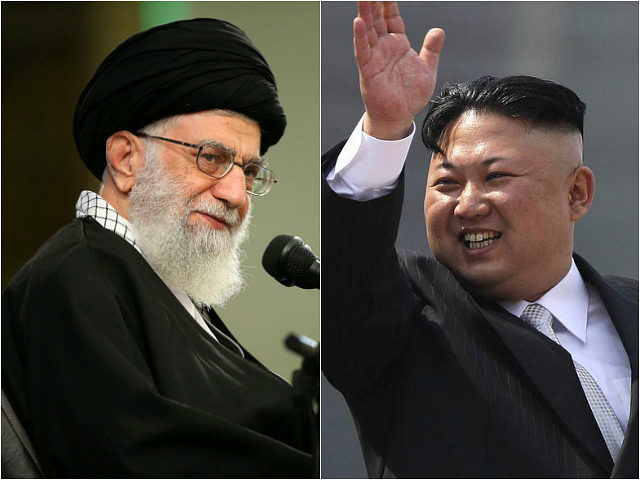TEL AVIV – Israel turned down a North Korean offer in 1999 to halt weapons sales and missile technology transfers to the Jewish state’s enemies, including Iran, in return for $1 billion in cash, over fears the U.S. would be against the deal, a former North Korean diplomat and defector has revealed.
The offer was made by North Korea’s ambassador in Sweden, Son Mu Sin, to his Israeli counterpart, the Wall Street Journal reported Sunday, citing a recently published memoir by Third-Floor Secretariat Thae Yong-ho.
Israel’s counter-offer was to provide North Korea with more than a billion dollars in aid, including food, agriculture and medical assistance. However, Pyongyang, which was in dire economic straits, rejected the offer.
A nuclear reactor in Syria that Israel destroyed in 2007 was built with the help of North Korea. The Deir-a-Zor facility was almost identical to one in Yongbyon, which produced plutonium for nuclear bombs.
Last week, the former Israeli envoy Gideon Ben Ami confirmed to public broadcaster Kan that between 1999 and 2002 he conducted secret negotiations with Pyongyang’s ambassador.
In 2016, Thae defected to South Korea. He was the highest ranking diplomat to do so. He served as a translator between the two envoys in Stockholm.
In a meeting at a cafe, Son explained to Ben Ami that as a result of his country’s successful “satellite” launch — a euphemism for missile testing — Middle Eastern nations, including Iran, were interested in doing arms deals.
He asked Ben Ami to imagine the region once it was in possession of North Korean missile technology.
The Jerusalem Post cited senior Asia fellow at the Institute for Defense Analyses in Virginia, Kongdan (Katy) Oh, quoting Son telling Ben Ami that the region, which was “already a hot place, will be even hotter.”
“We don’t want that, because we truly understand your situation, like our situation,” she said, citing Thae’s memoir. “You are surrounded by bigger and very nasty powers. We are surrounded by a similar situation, particularly hostility from the United States. So these are the conditions we are seeing today, and we are very much interested in mutual help. Israel can help us, and we can help you.”
According to Oh, the Israeli envoy was “deeply miffed.”
Son said Pyongyang was in talks involving a $1 billion arms deal but was willing to “not engage in this business” if Israel came up with the sum instead.
Ben Ami met with Son again ten days later. Ben Ami said that after discussing the matter, Israel “cannot do this,” Oh said of their conversation. Oh said Ben Ami continued, “‘But we are interested in accepting your offer, because your point is very important — the Mideast is a hot place and a tough place and we don’t want bad countries shooting at us with missiles manufactured by you. So instead of cash, we are offering food’ — North Korea was going through a famine in 1999, up to three million people died of malnutrition and hunger — ‘and also fertilizer, because your agricultural conditions are so bad because you don’t have fertilizer.’”
In addition, she said, Israel offered medicine, “any humanitarian aid up to a billion dollars” and “special agriculture technology” to ameliorate humanitarian crises and prevent famine.
Son was resolute: “We only need cash.”
At a third meeting, Ben Ami said, “We cannot do it because America will be against the idea, and we are a very important ally of the United States.”
Oh emphasized that North Korea will “sell, export, transfer and engage in the proliferation of weapons of mass destruction whenever the price is right, the buyers are right, the timing is right or the conditions are good.”

COMMENTS
Please let us know if you're having issues with commenting.